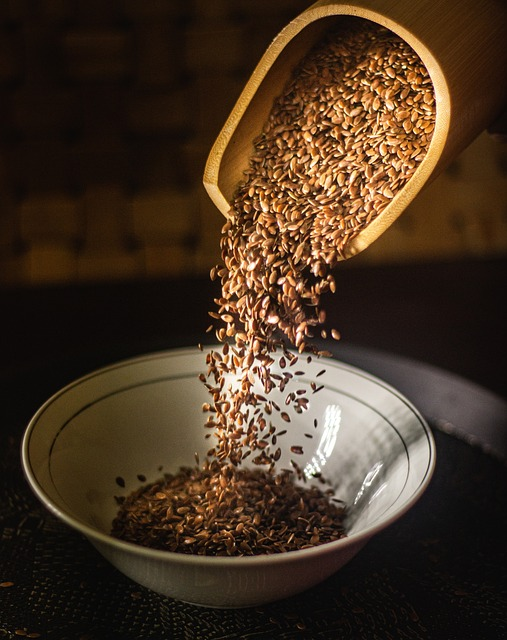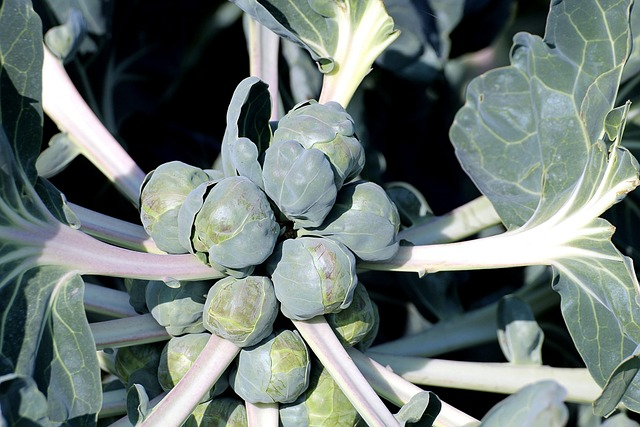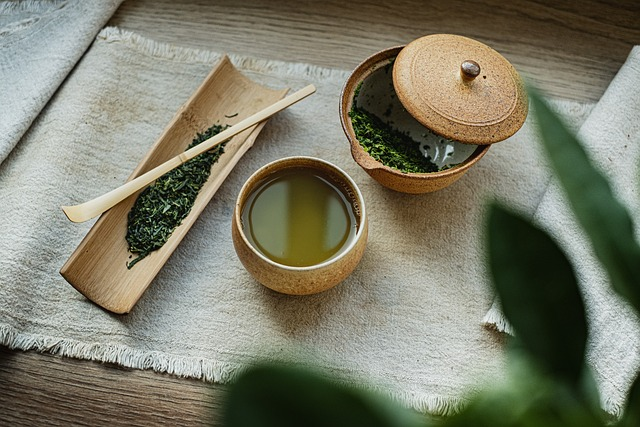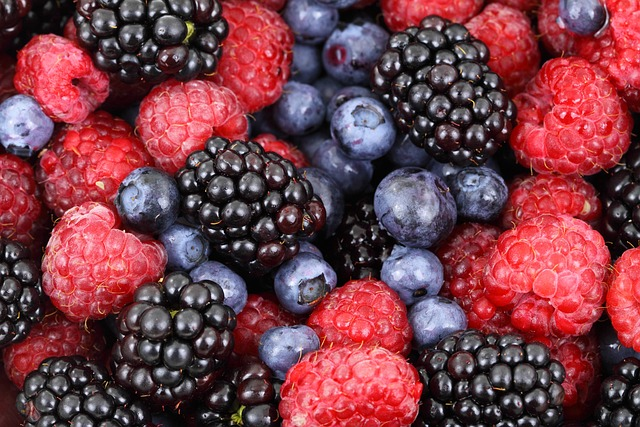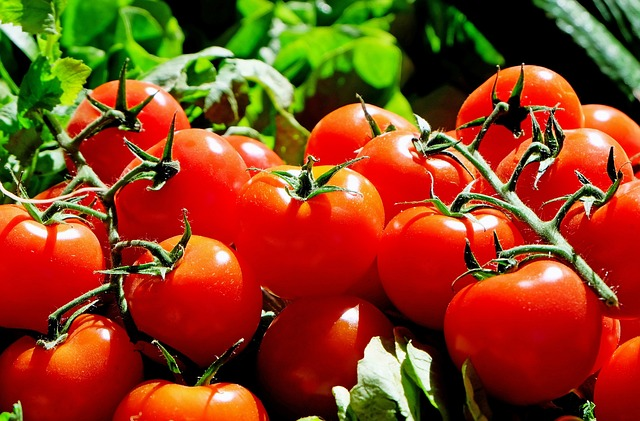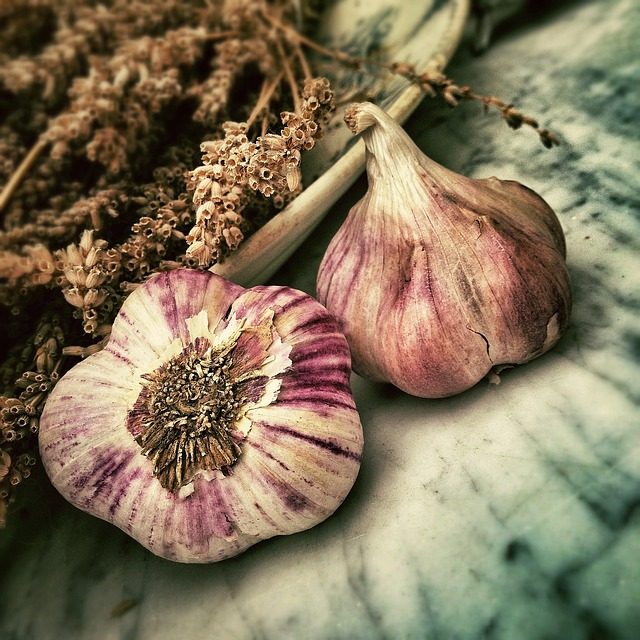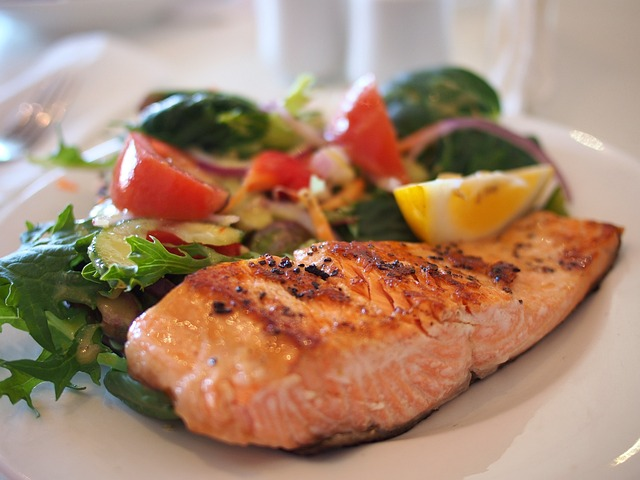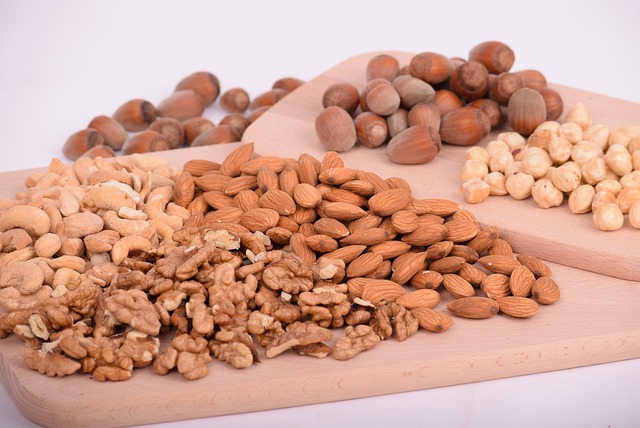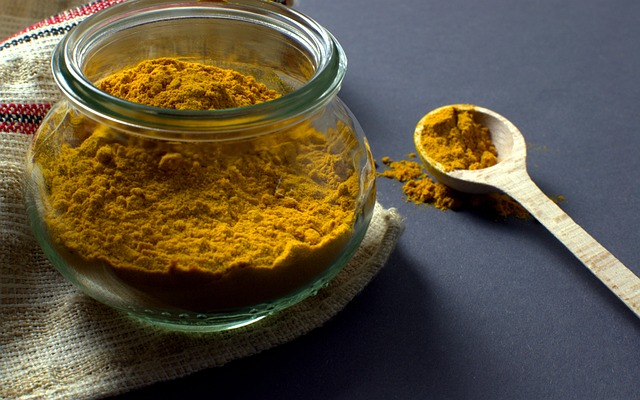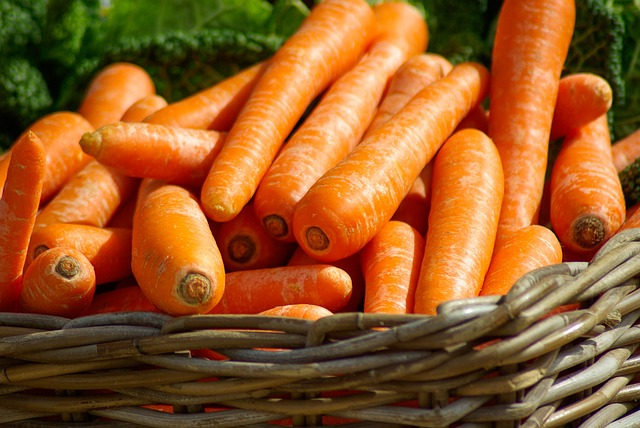10 Foods Proven to Kill Cancer Cells and Boost Health
This article offers a comprehensive guide to nutrition that helps fight cancer and improve health. Drawing on recent research, it presents ten foods proven to have cancer-fighting properties, along with their unique benefits and ways to incorporate them into your diet.
With topics ranging from superfoods such as kale and blueberries, to alternative cancer treatments like green tea and turmeric, this article provides a valuable look at the powerful effects of common dietary choices.
Read on to explore the many ways you can benefit from adding these cancer-fighting foods to your meals.
Cruciferous Vegetables
Cruciferous vegetables, such as broccoli, cauliflower, and kale, are like superheroes in the fight against cancer. Packed with vitamins C, E, and K, folate, minerals and fiber, they also contain carotenoids such as beta-carotene, lutein and zeaxanthin. Studies show that eating more of these veggies may have cancer-preventive effects and is linked to lower risk of colorectal and colon cancer.
These vegetables possess powerful plant compounds like diindolylmethane, sulforaphane and glucosinolates which protect cells from becoming cancerous; stop free radicals from oxidizing cells; have anti-tumor properties; slow down cancer cell growth; plus anti-carcinogenic & anti-inflammatory effects. To get the most out of their superpowers, it’s recommended to eat three to five servings per week. Enjoy them raw in salads or cooked in stir fries – add garlic or lemon for extra flavor & health benefits!
Broccoli
Dark green vegetables, like broccoli, are superheroes in disguise. Packed with powerful antioxidants such as beta-carotene, lutein and zeaxanthin, these superfoods can help protect healthy cells from turning into cancerous ones. Studies have shown that eating more broccoli may reduce the risk of prostate and colon cancers – some tumors even shrinking to half their size after 31 days! To get the most out of its cancer-fighting properties, it’s recommended to eat at least three to five servings per week – so don your cape and join the fight against cancer with a side of broccoli!
Cauliflower
Cauliflower is another vegetable superhero, with cancer-fighting properties that can significantly inhibit the growth of colon cancer cells in mice. Its secret weapon? Sulforaphane! Plus, it’s packed with vitamins and minerals like vitamin K and folate, as well as fiber – all ready to fight for your health. To get the most out of its superpowers, aim for three to five servings of cauliflower per week – it’s like charging up a superhero battery!
Kale
Kale is a beloved dark green leafy veggie, renowned for its cancer-fighting powers. It’s packed with glucosinolates that protect cells from free radical damage. Plus, it’s loaded with vitamin E, minerals and fiber – all essential nutrients for a healthy body. To get the most out of this superfood, aim to eat three to five servings per week – like taking a bite out of disease prevention!
Green Tea
Green tea is a beloved beverage, renowned for its unique flavor and health benefits. It’s like a superhero in a cup – packed with antioxidants and therapeutic compounds that can help fight cancer. Sulforaphane, found in cruciferous vegetables, is one of these cancer-fighting heroes; studies suggest it may reduce the risk of certain cancers.
Polyphenols and catechins are two more powerful allies against cancer – they inhibit the growth of cancer cells and even kill them off! Regular consumption of green tea could be your best defense against liver, breast, pancreatic, lung, esophageal or skin cancers – so why not try to drink two to four cups per day?
If you’re looking for the most potent green tea around, then head to Japan or an Asian supermarket. Unfortunately black teas don’t have the same anti-cancer properties as their unfermented counterparts nor do decaffeinated teas due to washing processes which strip away those all important catechins.
Polyphenols
Polyphenols are compounds found in plant-based foods, such as fruits, vegetables and tea, that could be the key to cancer prevention. Studies suggest that regular consumption of polyphenols may reduce the risk of developing certain types of cancer – including breast and gastrointestinal cancers – as well as chronic diseases like heart disease. But how much should you consume? It’s recommended to have at least 10-12 milligrams of kaempferol per day – equivalent to four cups of tea! You can also get your daily dose from cruciferous veggies like broccoli, cauliflower and kale, green leafy vegetables like spinach, or kidney beans.
Catechins
Catechins are compounds found in plant-based foods, such as fruits, vegetables, tea and cocoa beans – linked to cancer prevention. Studies suggest regular consumption of catechins may reduce the risk of developing certain types of cancer, including breast and gastrointestinal cancers – plus chronic diseases like heart disease. But how much should you consume? At least 10-12 milligrams per day – that’s four cups of tea! You can also find them in cruciferous veggies like broccoli, cauliflower and kale; green leafy vegetables like spinach; kidney beans…and green tea is an excellent source too. Research suggests it could help lower the risk for liver, breast, pancreatic, lung, esophageal and skin cancer. So why not give your health a helping hand with catechins?
Berries
Berries are known to be some of the best cancer-fighting foods available. Rich in phytonutrients, antioxidants and other beneficial nutrients, berries contain polyphenols, resveratrol, vitamin C, and anthocyanins, which are associated with a reduced risk of cancer. Anthocyanins, which give berries their deep red, blue, and purple hues, have been shown to inhibit premalignant cells, halt tumor blood vessels, and lower the incidence of cutaneous, esophagus, oral, and colon cancer. Studies have shown that the antioxidant properties of berries may help protect healthy cells from damage and inhibit the growth of cancer cells.
Blueberries, in particular, have earned the nickname “magical antioxidant pills from nature” due to their high nutrient content and health benefits. Human studies have found that bilberry extract can reduce the growth of colon cancer cells by 7%. A recent study has revealed that freeze-dried black raspberries can potentially reduce levels of biomarkers linked to oral cancer. This finding adds to the evidence which suggests that these berries could be beneficial in the treatment of this type of cancer. An animal study showed that freeze-dried black raspberries are highly effective in fighting esophageal tumors. These remarkable results included a 54% reduction in tumor incidence and a 62% decrease in the number of tumors. Yet another animal study showed that an extract of berries inhibited several biomarkers of cancer.
Incorporating a variety of seasonal berries into a balanced diet may help reduce the risk of developing cancer. Adding berries to plain, no-fat, high-protein Greek yogurt is an easy and delicious way to add a serving or two of berries to one’s daily diet. Fiber is an essential nutrient which provides many health benefits. Studies have shown it to be associated with a decreased risk of digestive cancers, such as colon cancer.
Overall, there is evidence to suggest that antioxidants from certain foods, such as berries, may have anti-tumor and anti-carcinogenic effects. Though more research is needed to confirm the potential cancer-fighting properties of berries, adding a few servings of berries to one’s daily diet may help to inhibit the development and size of tumors, as well as protect healthy cells.
Tomatoes
Tomatoes are one of the most powerful weapons in the fight against cancer – but what other foods can help? Packed with lycopene, carotenoids, flavonoids and phytochemicals, tomatoes are a nutritional powerhouse. Studies have shown that eating more tomatoes and foods containing lycopene can lower the risk of developing prostate cancer. For maximum benefit, try adding them to sandwiches, salads or pasta dishes – even better if you combine it with fat for increased bioavailability!
Cinnamon extract is another cancer-fighting compound found in tomatoes, which may reduce tumor growth and spread. Garlic also contains bioactive molecules like allicin, which protect healthy cells from damage. Other great options include green leafy vegetables such as spinach or kale, kidney beans, and leafy greens like broccoli or cabbage – especially when combined with a diet low in processed meats.
In conclusion, tomatoes are an essential food to fight cancer thanks to their powerful nutrients including lycopene and carotenoids. Cinnamon extract and garlic can also help protect cells from cancer while other veggies like spinach, kale, kidney beans and broccoli provide additional benefits when paired with a balanced diet free of processed meats. Include at least one serving of these superfoods each day for optimal protection!
Garlic
Garlic has long been a superhero in the fight against cancer, with its anti-cancer properties widely touted. Its bioactive molecules – allicin, diallyl trisulfide, diallyl disulfide, diallyl sulfide and allylmercaptan – have been tested to assess their potential to inhibit cancer cells. Studies show that garlic extract can reduce the risk of stomach and pancreatic cancers while garlic phytocompounds and nanoformulations have been evaluated for their ability to alter lipid peroxidation, nitric oxide synthase activity, nuclear factor epidermal growth factor receptor and protein kinase.
Garlic is capable of inhibiting different stages of cancer: initiation, promotion and progression. Allicin, tryptophan selenium and sulfur are the components responsible for killing cancer cells by blocking cell cycle and survival signaling pathways.
Dark green vegetables such as spinach or kale; citrus fruits; broccoli; kidney beans high in folic acid; leafy green vegetables are also recommended for their anti-cancer properties as they can lower the risk of developing colorectal tumors or upper respiratory tract cancers.
So how much garlic should you consume daily to take advantage of its health benefits? Research suggests 2–5 grams (approximately one clove) may help reduce your risk of certain cancers – though further studies are needed before we know for sure!
Fatty Fish
Fatty fish, such as salmon, sardines, mackerel and catfish, are a nutritious addition to any diet. Packed with cancer-fighting properties like Vitamin D and Omega-3 fatty acids, these fish can help reduce the risk of developing certain types of cancer.
A recent study involving over half a million people found that those who had higher intakes of fish had lower risks of digestive tract cancer. This suggests that including fatty fish in your diet could be beneficial for preventing cancer growth.
Vitamin D helps regulate cell growth while Omega-3 fatty acids activate genes which protect against DNA damage and suppress tumor growth – both found in abundance in fatty fish! To get the most out of this superfood, aim for two servings per week to reap its potential health benefits such as reducing the risk of developing cancer and maintaining a healthy weight. Further research is needed to understand how eating more fatty fish affects our chances at avoiding cancers – but until then it’s worth adding some extra omega-rich meals into your weekly routine!
Nuts
Nuts are a nutritional powerhouse – but could they also help fight cancer? Research has been conducted to explore the connection between nuts and cancer, with some promising results. For example, Brazil nuts are a good source of selenium, which may protect against lung cancer in those with low selenium levels. Legumes like beans have been linked to a lower risk of colorectal cancer, while mice fed walnuts showed an 80% decrease in breast cancer cell growth rate and 60% fewer tumors.
A diet high in bean fiber was found to reduce the risk of developing breast cancer by 20%, according to researchers. A 30,708 participant study also revealed that eating several servings of nuts each week can be associated with a decreased risk for colorectal, pancreatic and endometrial cancers – particularly walnuts.
In conclusion, adding more nuts into your diet is an easy way to increase your fiber intake and potentially reduce your risk for certain types of cancers – although further research is needed before we can confirm this connection definitively.
Turmeric
Turmeric is a root in the ginger family, and its active ingredient is curcumin. But what makes this spice so special? Curcumin is a powerful antioxidant and anti-inflammatory compound that has been studied as a potential cancer treatment and prevention. Studies have shown that it can suppress the transformation, proliferation, and invasion of cancerous cells, decrease tumor growth and spread, and induce cell death. A study on 44 patients with colon lesions found those who consumed curcumin had significantly fewer lesions than those who did not take the supplement.
So how do we get all these amazing benefits from turmeric? It’s simple – consume 1/2–3 teaspoons (1–3 grams) of turmeric per day! You can add it to your food or drinks for an extra kick of flavor or take a supplement regimen with curcumin combined with other cancer fighting compounds like green leafy vegetables for maximum effect.
In conclusion, turmeric is more than just a tasty addition to our meals – it’s also an effective way to fight off cancer! Curcumin has been proven to suppress the transformation, proliferation, and invasion of cancerous cells while decreasing tumor growth and spread. Taking turmeric daily may be beneficial for both preventing and treating certain types of cancers.
Carrots
Carrots are a delicious addition to any meal, but they can do so much more than just add color. Carotenoids are naturally occurring pigments that give many fruits and vegetables their orange, yellow, and red hues – the most common being beta carotene, which is converted to vitamin A and has been linked to cancer prevention.
But what else can help reduce your risk of developing cancer? The American Association for Cancer Research (AACR) reported that vitamin D may cut breast cancer risk by up to 50%. However, other factors such as eating green leafy veggies or avoiding processed meats could also play a role in reducing the risk associated with carrot consumption.
Carotenoids have powerful anti-cancer properties that can help lower the chances of getting lung, stomach, prostate or breast cancers. Beta carotene has even been shown to inhibit growth of malignant cells!
In conclusion, carrots are an excellent source of carotenoids which have strong anti-cancer benefits. Eating a diet rich in these nutrients can help protect you from developing certain types of cancer while also inhibiting the growth of existing ones. Additionally, AACR suggests that Vitamin D may reduce the risk of breast cancer by up to 50%, however it’s important not only eat carrots but maintain a healthy diet including kidney beans and leafy greens while avoiding processed meats too!
Flaxseed
Flaxseed is a superhero of cancer-fighting foods, with its lignans and omega-3 fatty acids acting as a shield against the growth of cancer cells. How much should you consume? 10-12 tablespoons (100-120 grams) of ground flaxseed per week is recommended. Not only does it fight off cancer, but it also provides dietary fiber to reduce colorectal cancer risk and folate to reduce pancreatic cancer risk. So what kind of diet can help in the battle against cancer? Eating a diet rich in flaxseed, green leafy vegetables, kidney beans, and other leafy greens will give you an extra boost!
Summary
In conclusion, there are many natural foods that have been proven to help protect against and fight cancer cells. Cruciferous vegetables such as broccoli, cauliflower, and kale are delicious, nutrient-rich choices that may be beneficial in reducing the risk of prostate and colon cancers. Green tea is widely appreciated for its cancer-fighting properties due to its antioxidants, polyphenols, and catechins.
Berries, tomatoes, garlic, fatty fish, nuts, turmeric, carrots, and flaxseed are all excellent sources of dietary fiber, vitamins, minerals, and cancer-fighting compounds that should be included in an anti-cancer diet. While little lifestyle changes can make a big difference, never stop seeking professional medical advice for better cancer prevention and control.
Together with conscientious lifestyle habits, such as maintaining a healthy weight, regular physical activity, and avoiding excessive exposure to the sun, these cancer-fighting foods may provide further benefits in reducing the risk of developing cancer and helping to keep your body healthy and strong.
Frequently Asked Questions
What food can destroy cancer cells?
Making healthier food choices can play an important role in fighting cancer. Legumes, flaxseeds, tea, garlic, and whole grains have all been shown to inhibit the growth of cancer cells, providing a way to fight back against this deadly disease.
By adding these foods to your diet, you can help eliminate cancer cells.
What foods shrink cancer cells?
Eating certain foods has been shown to help fight cancer by shrinking cancer cells, such as cruciferous vegetables, tomatoes, turmeric, garlic, citrus fruits, beverages like green tea and pomegranate juice, and whole grains.
Incorporating these foods into your diet can help protect your body from cancer growth.
What can i drink to fight cancer?
To help fight cancer, it is advised to drink beverages such as coffee, teas (green, black and white), 100% vegetable and fruit juices, herbal teas and infusions, and red wine in moderation. By including these items in your diet, you can benefit from the antioxidant and anti-inflammatory properties that may help prevent cell damage which could trigger the cancer process.
These beverages can be consumed in moderation to help reduce the risk of cancer. They are rich in antioxidants and anti-inflammatory compounds that can help protect cells from damage that can lead to cancer. Additionally, these beverages can help reduce inflammation, which is a major risk factor for cancer.
Which fruits destroy cancer cells?
Soursop fruit and strawberries and raspberries are fruits that are known to have powerful benefits for cancer prevention and treatment. Studies have shown them to be highly effective in destroying cancer cells and warding off chronic diseases.
What foods can destroy cancer cells?
Several studies have indicated that including certain foods in your diet – such as legumes, flaxseeds, tea, garlic, and whole grains – can help fight cancer cells. Eating these foods regularly could provide an added layer of protection against the growth and spread of cancer.

